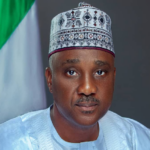An international non-governmental organisation, Marie Stopes Nigeria, has expressed concerns that about 19 per cent of active women of childbearing age, representing about 45 million, lack access to family planning and sexual reproductive health services in the country.
Country Director, Marie Stopes Nigeria, Effiom Effiom, spoke in Abuja Monday during a two-day sexual reproductive health workshop his organization, in collaboration with the Federal Ministry of Health, organised for traditional and religious leaders.
- MURIC to Ogun varsity: Withdraw ban on niqab within 7 days
- IPOB’s killing of 3 policemen gruesome — FG
He said lack of access to facilities for family planning and sexual reproductive health services, lack of commodities at health facilities, coupled with other traditional and religious barriers have contributed to the high maternal mortality rates in the country.
Effiom said the workshop was organised to engage traditional and religious leaders to appreciate critical issues affecting the provision and uptake of quality reproductive health services.
Permanent Secretary, Ministry of Health, Mamman Mahmuda, said traditional and religious leaders had a role in promoting advocacy and supporting demand generation for sexual reproductive health services and rights to reduce maternal and infant mortalities in Nigeria.
Marie Stopes Nigeria is an organisation focused on empowering families, women and girls with reproductive choices through provisions of reproductive health care and child spacing services that are aimed at reducing infant and maternal deaths.
According to Effiom, his organisation had over the last 10 years been working with religious and traditional rulers around issues of child spacing and family planning and why it is important for women to plan and “have children by choice and not by chance.”
“The total fertility rate in Nigeria today stands at 5.3%; what that means is that an average Nigerian woman will have 5.3 kids. it is worse in the rural areas.
What this means is that if we continue at this space of childbirth, we will be about 450 million Nigerians by 2050. The. question is can we provide enough resources, schools and infrastructure to take care of them?
“We must do more as a nation and one of the institutions that has lived with the people over the years and still live with them are the traditional and religious leaders. That’s why we say we start by talking to them. let them know that they have key role to play in strengthening family planning and reproductive health.
“We felt that it is important these leaders come together to get involved. We hope that when we finish this workshop, they will be able to add their voice to the issue of family planning”, he said.
He said since its inception in 2009, Marie Stopes Nigeria has worked closely with the government at all levels to train health providers, strengthen the policy environment, support commodity logistics and mobilise communities for increased access to, and uptake of quality sexual and reproductive health services.
He said despite COVID-19 disruptions, the organisation in 2020 was able to serve 5.2 million women with family planning services, adding that through such interventions, 14,000 maternal deaths and 2.4 million unintended pregnancies were prevented.
In his goodwill message, the Emir of Dass, Alhaji Usman Bilyaminu Othman, said besides sensitising the people on the issue of family planning, the governments at all levels need to provide adequate facilities and commodities as well as trained personnel across the country to increase access to family planning and reproductive health services.
On his part, the paramount ruler (Deji) of Akure, Oba Aladetoyinbo Ogunlade Aladelusi, stressed the need to make reproductive services free and accessible to people, adding that the country should also consider the option of legalising abortion in the country to discourage people from engaging in unsafe abortion.

 Join Daily Trust WhatsApp Community For Quick Access To News and Happenings Around You.
Join Daily Trust WhatsApp Community For Quick Access To News and Happenings Around You.


